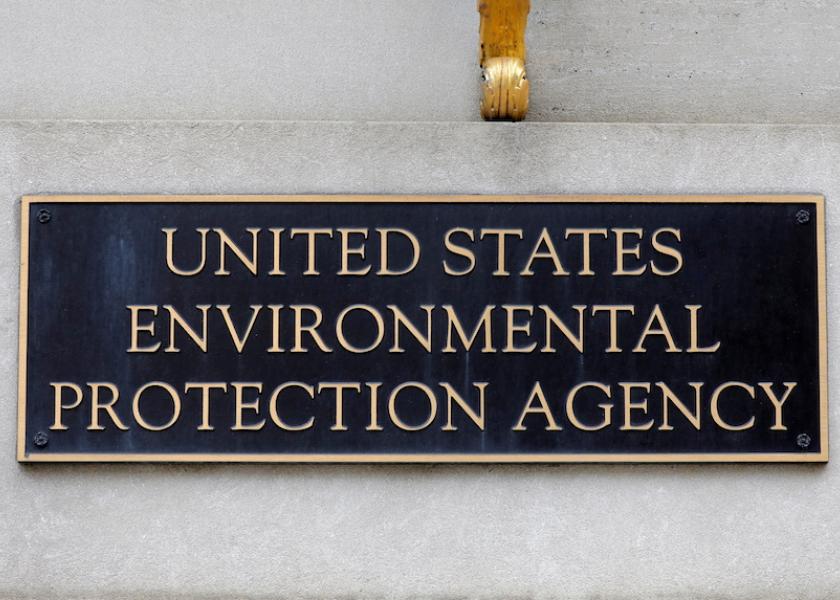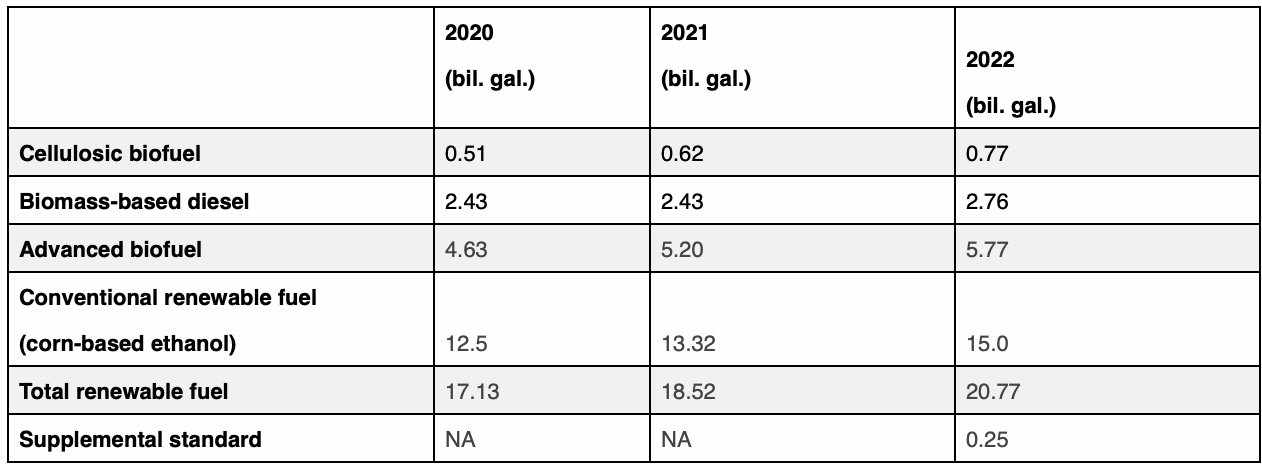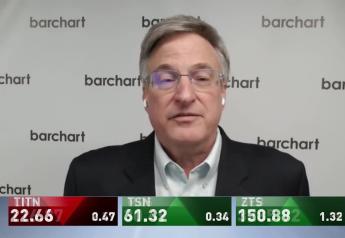EPA Rolls Out Three Biofuels Proposals

On Tuesday, the Biden administration announced three proposals that impact the biofuels industry. Next steps include a virtual public hearing on the proposed rules in early January and a public comment period.
Renewable Fuel Volumes
The first proposal involves reducing the amount of biofuels oil refiners have been required to blend into their fuel since the onset of the COVID-19 pandemic.
EPA proposed to retroactively set total renewable fuel volumes at 17.13 billion gallons for 2020, including 12.5 billion gallons of corn-based ethanol. At 20.09 billion gallons, the previously finalized rule included 15 billion gallons of corn-based ethanol.
For 2021, the agency proposed to set total volumes at 18.52 billion gallons, with 13.32 billion gallons of corn-based ethanol. In 2022, the total renewable fuel volume increases to 20.77 billion gallons, but the corn-based ethanol volume returns to the statutory 15 billion gallons.
Supplemental Obligation
EPA also proposed to add a 250-million-gallon “supplemental obligation” to the proposed volumes for 2022 and stated it intends to add another 250 million gallons in 2023. According to EPA, “This would address the remainder of the 2014-2016 annual rule by the DC Circuit Court of Appeals in Americans for Clean Energy v. EPA.”

In tandem with EPA’s announcement, USDA promised $700 million in grants to biofuel producers as COVID-19 relief and another $100 million in support for biofuels infrastructure.
Co-chairs of the House Biofuels Caucus, Cindy Axne (IA-03), Angie Craig (MN-02) and Mark Pocan (WI-02), and U.S. Rep. Ron Kind (WI-03) posted a statement: “After months of unnecessary delay, we are glad that the EPA has released the long-overdue Renewable Volume Obligations (RVOs). The 2022 number sets the biofuels industry on the right path moving forward. And the end of the abuse of Small Refinery Exemptions – which provide relief to oil companies at the expense of family farmers – is welcome news.”
U.S. Senator Deb Fischer (R-Neb.) disagrees, saying the RVOs give big oil a “huge break at the expense of farmers.” She believes the administration “intentionally” delayed denying the 65 small refinery exemptions, instead of alerting the biofuels industry sooner.
“The administration has broken its promises,” Fischer says. “I will continue to work with my colleagues on both sides of the aisle to fight for fairness and certainty for our ethanol producers.”
Small Refinery Exemptions
Speaking of small refinery exemptions, EPA announced a proposed decision to reject all 65 pending small refinery exemptions petitions under the Renewable Fuel Standard (RFS) program.
EPA’s proposal includes its prior interpretation of the Clean Air Act’s small refinery exemptions provision, as well as a proposed change, which leads to an adjustment in determining disproportionate economic hardship.
The agency did not find evidence supporting disproportionate economic hardship conducive to an exemption, which lead to the proposed denial of the small refinery exemptions petitions. EPA uses the following information to determine disproportionate economic hardship:
1. Compliance costs are the same for all parties.
2. All parties, including small refineries, can recover compliance costs through market prices at point of sale.
3. If no disproportionality and no economic hardship is found, an exemption cannot be pursued, according to the statute.
According to a regulatory update posted on Tuesday, the supporting evidence was “compelled by the Tenth Circuit’s 2020 ruling in RFA, the Supreme Court’s subsequent decision in HollyFrontier, EPA’s experience implementing the RFS program for more than a decade and EPA’s exhaustive analysis of how the renewable identification numbers market functions.”
EPA says the increased price for gasoline and diesel allows obligated parties to recover their costs through the market price of the fuel they produce.
Electric Vehicle Eligibility
EPA is considering making electric vehicle power generation eligible for renewable fuel credits, known as renewable identification numbers (RINs), when it unveils its 2023 biofuel blending mandates next year, a top official told Reuters. The White House has directed the agency to study how using renewable fuels to power electric vehicle charging could generate RINs under the nation’s biofuels program.
EPA will hold a virtual public hearing Jan. 4, 2022, on the proposed rules. Public comment on the proposed rule is to be submitted to the EPA through the Federal Register, here.
Related articles:
> Pro Farmer Evening Report: Dec. 7, 2021







